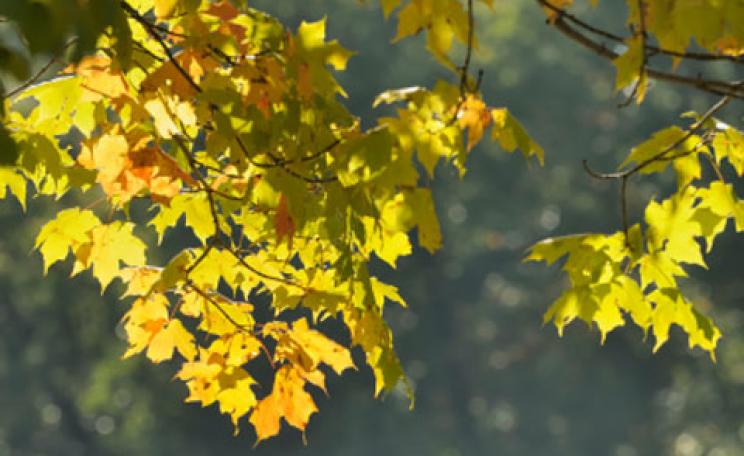When Tom Fisher (pictured below) moved home commoners' rights were not high on his list of priorities. Nor were they that important to many of his new neighbours.
But as time moved on the romance of grazing a goat, or a goose, on his local common took hold, and he decided to become a commoner.
'Right from our house you go out onto the common,' he said.
 'We were aware when the house purchase went through we did not have any commoners' rights. We gradually realised some people did, but none of them were really being exercised.'
'We were aware when the house purchase went through we did not have any commoners' rights. We gradually realised some people did, but none of them were really being exercised.'
Where to start? Commons, often surviving from pre-medieval times, having somehow made it through history, don't always sit easily with modern life.
In Fisher's case his first call was to Herefordshire Council, responsible for keeping a register of commons in the old county of Hereford and, as chance would have it, one of the handful of pilot areas for the Commons Act 2006.
The information he needed is only a few clicks away on the council's website but in the end, in keeping with his somehow out-of-time quest, Fisher was confronted by an enormous book.
'It was a bit like an old family Bible, a big ledger. A big old-fashioned book where you can image people writing in quill pens,' he said.
'There were lots of crossings out and arrows going from one page to another and that kind of thing. You had to look right through the whole thing, have a really good search. It was a real performance.'
The crossings-out and arrows snaking across the register's pages were enough to tell him his commoners' rights had not been registered and, crucially, he could apply.
Becoming a commoner
The 2006 Act seeks to review the registers of common land in England, held by county and unitary councils, after 40 years of institutional neglect.
Some commons were missed in the 1960s, the last time the registers were revised, some wrongly registered, while some perfectly good applications were rejected in the face of hostility from landowners or developers.
And the rights associated with them in many cases just faded away, a lifestyle accessory at odds with the twice-daily commute and the weekly supermarket trip.
 Fisher applied to graze a goat and a kid, and to take firewood, at Bringsty Common (pictured right), in the north of Herefordshire, overlooked by the great whaleback of the Malvern Hills.
Fisher applied to graze a goat and a kid, and to take firewood, at Bringsty Common (pictured right), in the north of Herefordshire, overlooked by the great whaleback of the Malvern Hills.
In the sweet vocabulary of commons, grazing livestock is known as herbage, taking firewood, gorse or furze as estovers.
The system is overseen at Bringsty by a manorial court, a similar institution to those that police many of England's commons, which had no objections to Fisher's application.
Nor did Natural England, which now has a statutory right to be consulted on such applications, a reflection of their wildlife conservation value.
State of the environment
Almost 90 per cent of English commons are designated in one way or another for their wildlife, landscape or archaeological interest.
Bringsty Common, roughly 230 acres of young woodland, bracken and rough grassland, is managed for the high brown fritillary, a butterfly in dramatic decline and now reduced to about 50 sites in western England and Wales.
The Malvern area was formally a hotspot for the struggling species and conservationists hope it will reappear there.
Kate Ashbrook, general secretary of the Open Spaces Society, which campaigns to protect commons, said: 'They are really stupendous because they have not been mucked around with.
'They are immensely important because they are largely undisturbed, they are often as close as you can get to a natural environment.'
Fisher paid the £100 fee and expected his objection-free application to proceed quickly but, to his surprise, Herefordshire Council referred it to the Planning Inspectorate, claiming it wanted to do a ‘belt-and-braces job'.
 Modernising the Commons Act
Modernising the Commons Act
The 2006 Act now seems mired in the same kind of frustration. The seven pilot areas (peculiarly renamed pioneer areas) should have finished their work and the review mechanism spread to the rest of England.
But the promise of rectifying the wrongs of the 1960s appears increasingly mirage-like. It is now unlikely much will happen before this autumn and possible the piloting period will be lengthened.
Ashbrook said: 'They should have extended it but have not. Defra just has not got its act together to do anything about it.
'They did have a timetable but it has all gone pear-shaped, I think they are scared stiff and thinking about other things.'
Fisher had half-forgotten about his application by the time it was approved, eight months from start to finish.
He has not brought his goat, there would be too many more legislative hoops to jump, may be too many for a single animal.
But he does have his commoners' rights and they can carry some clout. He said: 'Just being registered as a commoner is, in a way, the most important thing because I am now part of it.
'I have got that little stake in the common I did not have before.'
Strength in numbers
Commoners can get together if needs be to, say, see off a developer wanting to build houses, or a local authority eager to shave away part of a common to widen a road.
Or simply oversee how a common is managed, today ordinarily for conservation and recreation - since 2000 everybody has enjoyed a statutory right to roam on England's commons.
Not necessarily the matter of life and death the right to graze livestock for part of each year, or to gather firewood, represented to many of our forebears.
But an historical continuity none the less, the twin headings of conservation and recreation arguably as important to us now as the old rights were in grittier times.
And, commons once again seemingly determined to be out of sync with the modern, managed as a collective enterprise.
Fisher said: 'Anything that encourages joint responsibility and common interest and all that kind of thing, I think is a very good thing.
'I think the concept is very relevant to today and I think it is the future.'
Chris Baker is a freelance journalist
| READ MORE... | |
 |
HOW TO MAKE A DIFFERENCE Keeping our outdoor spaces open to all Devoted 'countryside activist' Dave Bangs is leading the campaign for increased public access to some of the UK's most species-rich and soul-affirming spots |
 |
GREEN LIVING Allotments are not for building on Paul Kingsnorth on the battle to keep land for people to grow their own food, rather than for developers to grow rich. |
 |
NEWS Biofuels: jatropha still linked to 'land grabbing and displacement of farmers' European investment companies continue to tout the biofuel as a 'wonder-crop' despite serious environmental and social impacts - Friends of the Earth report |
 |
INVESTIGATION Bexhill bypass puts road building back in the spotlight Opponents say the controversial bypass will damage ancient woodlands, disturb wetland birds and impact on protected areas - and it's just one of 22 similar schemes currently awaiting approval. Jan Goodey investigates |
 |
GREEN LIVING Top 10...Woodland Walks Packed with rare flora and fauna, Britain’s woodlands are the perfect place for getting to grips with nature. From Yorkshire to the Lake District, Hampshire and beyond, Ruth Styles rounds up the best walks |







